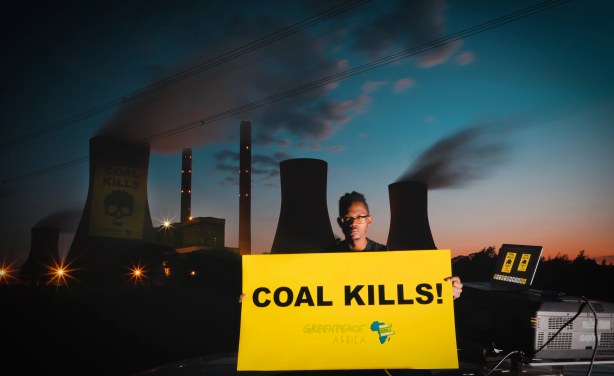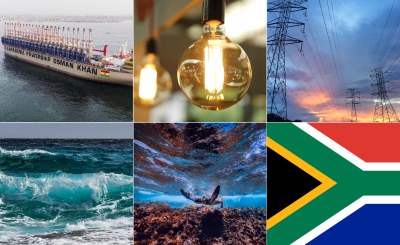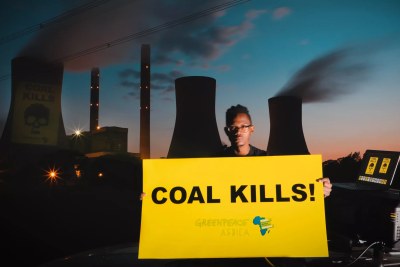-
South Africa: Is Africa's Biggest Polluter Capable of Transformation?
allAfrica, 4 June 2021
The public utility which supplies the vast majority of South Africa's electricity, Eskom, is the biggest polluter on the continent, according to a local non-governmental… Read more »
-
South Africa: Minister Mantashe Must Go
DA, 4 June 2021
The decision by the Pretoria High Court to declare that the environmental approval for the 600MW Khanyisa coal-fired power station in Mpumalanga has expired must surely drive the… Read more »
-
South Africa: Approval for Another New Coal-Fired Power Station Set Aside By High Court
groundWork, 3 June 2021
The court order is effectively the final nail in the coffin for the proposed coal plant - backed by Saudi company ACWA Power - which has met countless legal and other hurdles since… Read more »
-
South Africa: Eskom Reaches a Deal With City of Ekurhuleni
SAnews.gov.za, 3 June 2021
Eskom and the City of Ekurhuleni have reached an agreement on the implementation of load shedding. Read more »
-
South Africa: City of Gold Plunges Its Residents Into Darkness - 1,407 Power Cuts in 2021 - and That's Besides Load Shedding
Daily Maverick, 30 May 2021
The collapse of electricity infrastructure in Johannesburg is taking a toll on its residents and also on the national economy. On July 1, electricity tariffs in the city will… Read more »
Is Eskom, Africa's Biggest Polluter, Capable of Transformation?
The public utility which supplies the vast majority of South Africa's electricity, Eskom, is the biggest polluter on the continent, according to a local non-governmental organisation.
The Climate Justice Coalition (CJC), which includes trade unions, civil society and community organisations, is running a #GreenNewEskom campaign aimed at achieving a transition to clean, safe and affordable renewable energy.
In the past decade, Eskom has been besieged with financial and infrastructural difficulties that have cost the South African economy billions. Research from the Efficient Group estimates that the utility's woes have resulted in a reduction in GDP by 0.30% during 2019, roughly the equivalent of U.S. $617 million.
The parastatal is in dire need of transformation, not only in terms of economic turnaround but also to move from its reliance on its most fundamental resource: coal. South Africa's greenhouse emissions in 2015 totaled 512 million tonnes of carbon dioxide, an increase of 20% over the figure of 426 million in 2000, the government said in a 2019 report to UN Climate Change.
The power utility has an "aspirational vision" of producing net-zero emissions by 2050, in accordance with a government announcement in February 2020 that set the goal. The government aims to boost the shift to renewable energy through partnerships with private companies via the Renewable Energy Independent Power Producer (REIPP) scheme, which has secured investment of more than $15 billion.
InFocus
-
Heavy industries and Eskom power stations on the Highveld play a vital role in sustaining South Africa's economy, but this cannot be used to justify the excessive levels of air ... Read more »
-
Power utility Eskom is the only source of electricity in South Africa which also supplies some African countries, including Zimbabwe and Mozambique. The energy supplier has for the ... Read more »

Mpumalanga is home to a cluster of twelve coal-fired power plants with a total capacity of over 32 gigawatts owned and operated by Eskom. The satellite data further reveals that the cities of Johannesburg and Pretoria are also highly affected by extreme NO2 pollution levels which blow across from Mpumalanga and into both cities due to close proximity and regular eastwinds.




